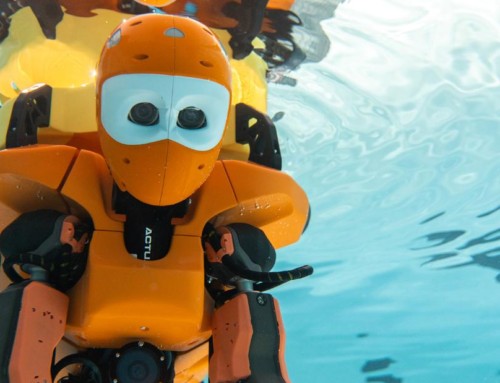[ad_1]

A team of researchers affiliated with several institutions in South Korea and one in Switzerland has demonstrated that it is possible to use magnetically actuated microrobots to deliver stem cells to targeted tissue. In their paper published in the journal Science Robotics, the group describes creating the tiny bots and how well they worked when tested.
Prior work has shown that it should be possible to deliver drugs to a target in a living human by injecting tiny robots into the bloodstream then directing them to a target using external magnets. In this new effort, the researchers have shown that the same should be possible for stem cells.
Using stem cells to treat human conditions or to repair damaged tissue has become a major area of research for scientists, but currently, the only way to deliver them to a targeted area is by injection. But injecting them into hard-to-reach areas can be difficult and result in tissue damage. Injection also has a low stem cell survival rate. To overcome the problems associated with injection, the researchers used 3-D laser lithography to produce two robot shapes, a sphere and a helix—both with porous surfaces to allow stem cells to adhere to them. The researchers then used a magnetic field to move the robots through various scenarios. To direct the spherical robots, the team used a rotating motion with the magnet—for the helical robots, they used a rolling motion.
-

Illustration of experimental setup for magnetic manipulation of microrobots carrying stem cells through a rat brain. Credit: Jeon et al., Sci. Robot. 4, eaav4317 (2019)
-

Microrobots (grey) and differentiated neurons (orange) viewed under a scanning electron microscope. Credit: Jeon et al., Sci. Robot. 4, eaav4317 (2019)
Using their system, the researchers report directing microrobots to an empty cavity in a live mouse. They also moved them through an isolated blood vessel, a cell culture and a slice of rat brain. In most instances, the tiny bots carried stem cells, but the researchers also showed they could carry cancer cells as well—by delivering them to an organ on a chip.
The researchers note that their work is still very preliminary. In addition to testing for safety, there is still the elusive goal of finding a way to direct such robots in living human beings. Currently, the only way to see where they are inside of a living creature is to use technology based on magnetic resonance, which would interfere with guiding the microrobots.
Researchers use micro-robots to carry cells to a target site in live animals
© 2019 Science X Network
Citation:
Researchers use magnetically actuated microrobots to deliver stem cells to tissue targets (2019, May 31)
retrieved 1 June 2019
from https://phys.org/news/2019-05-magnetically-actuated-microrobots-stem-cells.html
This document is subject to copyright. Apart from any fair dealing for the purpose of private study or research, no
part may be reproduced without the written permission. The content is provided for information purposes only.
[ad_2]
Source link





Leave A Comment
You must be logged in to post a comment.